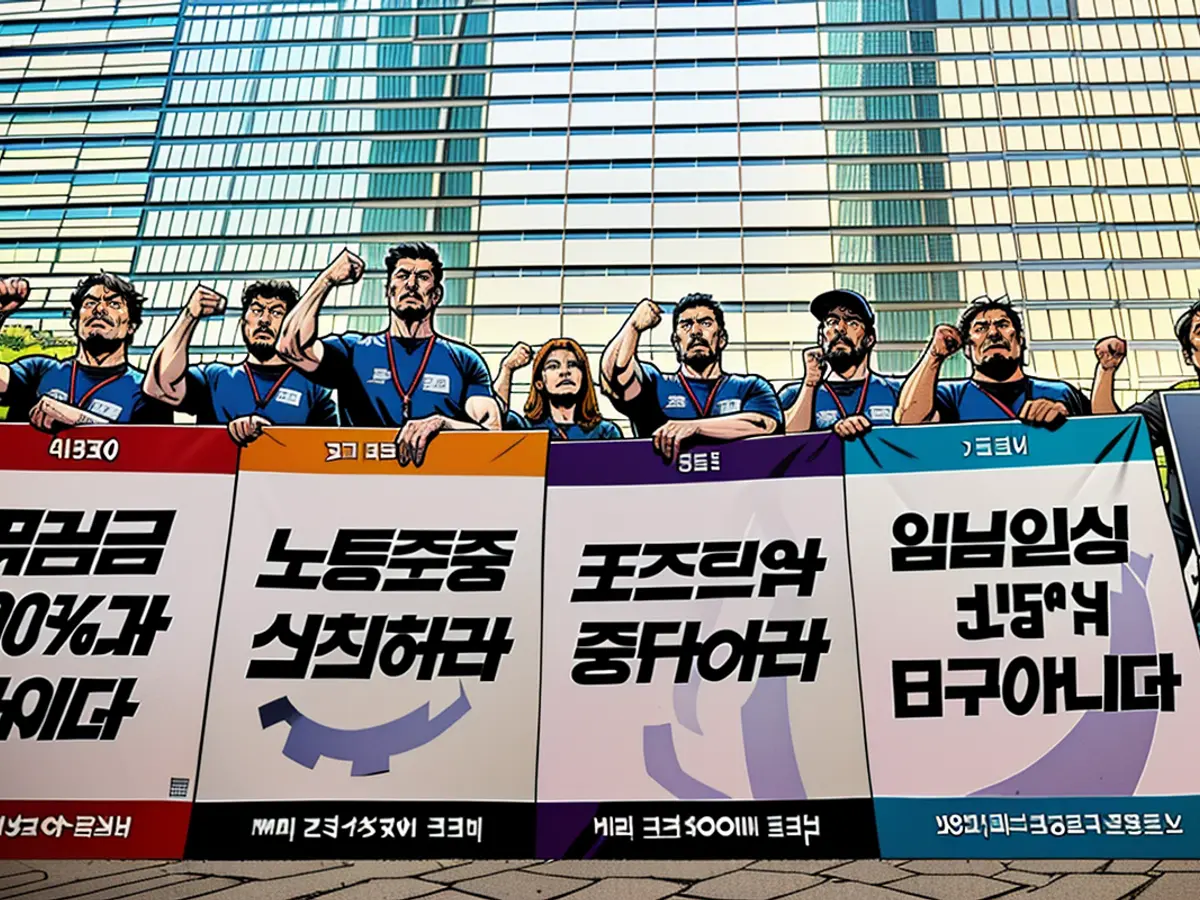Samsung Electronics employees hold their initial work stoppage.
The National Union of Samsung Electronics Workers (NUSEW) declared last week that their 28,000 members, accounting for almost a quarter of the company's employees in the country, would walk out on June 7. This decision came after failed discussions concerning salary and bonus packages.
The union urged its members to take Friday off, a day situated between a public holiday on Thursday and the weekend.
A union representative, Son Woomok, informed CNN that at one location, everyone had taken the day off. As a result, substitute workers were brought in. He failed to provide more details.
Prior to this, he mentioned that many NUSEW members were attached to Samsung's primary semiconductor unit. This division is actively attempting to restore its previous position as a top semiconductor company; as per Reuters, Samsung has lately been overtaken by SK Hynix and Micron Technology in the supply of semiconductors for AI processors.
A Samsung representative told CNN that operations and management activities had not been affected by this one-day strike.
"There's no impact on production or management activities," the spokesperson insisted.
Samsung, the world's leading memory chip manufacturer, has endured difficult times. A significant shortage of computer chips during the Covid-19 pandemic was followed by a decline in demand last year as uncertainty in the global economy led to diminished consumer interest in electronics.
However, the company is hopeful about a resurgence in demand for smartphones this year, especially with the release of AI-equipped models.
Samsung experienced a more than 10-fold increase in first-quarter operating profit in the previous month, largely due to expectations of high demand for AI and high-end chips, a market segment where it competes with Intel (INTC) and Taiwan's TSMC.
The world's most advanced microchips are predominantly manufactured in just two locations: Taiwan and South Korea. Taiwan's industry is more extensive and predominating, and South Korea seeks to challenge this dominance.

Read also:
Samsung aims to leverage advancements in tech to boost its semiconductor business, competing with tech giants like Intel and TSMC in the market for AI and high-end chips. As the world's leading memory chip manufacturer, the company is seeking to mitigate the impact of challenging business conditions, such as the chip shortage and reduced demand during the Covid-19 pandemic, by focusing on innovations that cater to the growing interest in smartphones and AI-equipped models.








